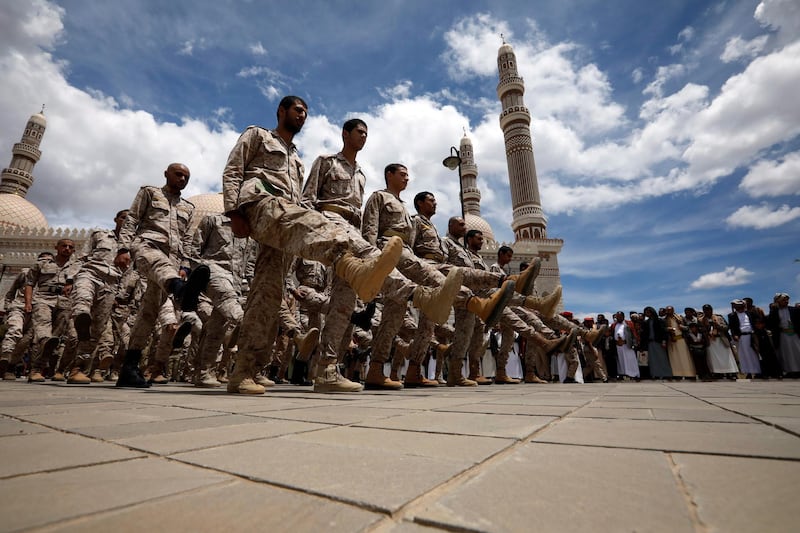The US and France on Tuesday accused the Iran-backed Houthi rebels of holding Yemen’s future hostage.
US President Joe Biden’s Yemen envoy, Tim Lenderking, and Christopher Farnaud, France’s director for the Middle East at the Foreign Affairs Ministry, spoke on Tuesday.
The US State Department tweeted after the call that both countries believed “the Houthis are holding the future of Yemen hostage, continuing a long, costly offensive on Marib".
#USEnvoyYemen Lenderking & @francediplo MENA Director Farnaud agreed the Houthis are holding the future of #Yemen hostage, continuing a long, costly offensive on Marib. The fair deal on the table will finally bring relief to the Yemeni people - the Houthis must engage.
— U.S. State Dept - Near Eastern Affairs (@StateDept_NEA) May 11, 2021
The State Department said Mr Lenderking and Mr Farnaud considered a Saudi-proposed ceasefire to be a “fair deal", and called on the Houthis to engage.
Mr Biden ended US support for the Saudi-led coalition, which is fighting to restore the internationally recognised Yemeni government, in February.
But the Houthis have refused to halt their year-long offensive on oil-rich Marib, threatening to exacerbate a humanitarian catastrophe in the province that houses about one million Yemenis displaced by six years of civil war.
The State Department also rebuked the Iran-backed rebel group for refusing to meet the UN's Yemen envoy, Martin Griffiths, in Oman last week.
Mr Lenderking also led a US delegation to Oman last week.
Chris Murphy of Connecticut, the chairman of the US Senate's Middle East panel, said on Monday that Mr Lenderking's delegation to take a "tougher line" on the Houthis to bring them into the Saudi-proposed peace initiative.
“They are one of the few countries in the region that have the ability to talk to the Houthis and we made clear that it is time for them to press the Houthis to declare a ceasefire,” Mr Murphy said.







